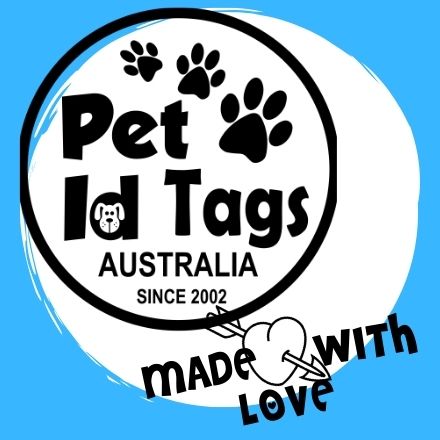Welcome to the ultimate guide for finding the perfect collar for your beloved four-legged friend. Whether you're a seasoned dog owner or a soon-to-be pup parent, choosing the right collar is essential for your dog's safety, comfort, and style. But with so many options available, how do you know which one is right for your furry companion?
In this comprehensive guide, we'll walk you through everything you need to know to make an informed decision. Whether you're looking for a simple and durable everyday collar, a training collar, or a fashion-forward accessory to make a statement, we've got you covered. We'll explore different collar materials and their benefits, discuss sizing and fit guidelines, and offer tips for choosing the right style for your dog's unique personality.
From leather to nylon, from Martingale to harnesses, we'll delve into the pros and cons of each type of collar, ensuring that you find the perfect match for your canine companion. Join us as we embark on this journey, and equip yourself with the knowledge and confidence to choose a collar that not only suits your pup's needs but also showcases their individuality.
Importance of choosing the right collar for your dog
Choosing the right collar for your dog is more than just a fashion statement. It plays a crucial role in their overall well-being and safety. A well-fitted collar ensures that your dog is comfortable during walks and prevents them from slipping out and running away. It also serves as a means of identification, with tags containing your contact information.
When selecting a collar, consider your dog's size, breed, and activity level. A collar that is too tight can cause discomfort and restrict breathing, while one that is too loose may slip off easily. Additionally, certain types of collars are designed for specific purposes, such as training or controlling pulling behavior.
Different types of dog collars
Dog collars come in a variety of styles, each with its own purpose and benefits. Let's explore the most common types of collars and their features:
1. Buckle Collars: These traditional collars feature a buckle closure and are made from materials like nylon or leather. They are great for everyday use and can be easily adjusted for a comfortable fit.
2. Martingale Collars: Ideal for dogs that tend to slip out of traditional collars, Martingale collars have an additional loop that tightens when the dog pulls, preventing escape. They are especially useful for dogs with narrow heads, like Greyhounds or Whippets.
3. Harnesses: Harnesses distribute pressure across the chest, making them a suitable choice for dogs with respiratory issues or breeds prone to neck injuries. They are also a good option for dogs that pull on walks, as they provide better control.
4. Prong Collars: Commonly used for training purposes, prong collars have metal prongs that apply pressure when the dog pulls. However, they should be used under the guidance of a professional trainer to ensure they are used correctly and safely.
5. Head Halters: Designed to gently redirect a dog's attention and prevent pulling, head halters fit over the dog's snout and behind their ears. They provide control without causing discomfort or choking.
Factors to consider when choosing a collar for your dog
When choosing a collar for your dog, it's important to consider several factors to ensure the best fit and functionality. Here are some key factors to keep in mind:
1. Size and Breed: Different breeds have different neck sizes and shapes, so it's crucial to measure your dog's neck accurately before purchasing a collar. Consult a size chart provided by the manufacturer to determine the appropriate size for your dog.
2. Activity Level: Consider your dog's activity level when selecting a collar. For active dogs that enjoy outdoor adventures, a durable and weather-resistant collar is essential. On the other hand, for smaller or less active dogs, a lightweight and comfortable collar may be more suitable.
3. Allergies and Sensitivities: Some dogs may have allergies or sensitivities to certain materials, such as nylon or leather. If your dog has any known allergies, opt for hypoallergenic alternatives like neoprene or natural fibers.
4. Reflective or LED Features: If you often walk your dog at night or in low-light conditions, consider a collar with reflective or LED features. These collars enhance visibility and help keep your dog safe during nighttime walks.
5. Personalization: Adding a personal touch to your dog's collar can be both stylish and practical. Look for collars that offer options for personalized tags, custom embroidery, or interchangeable accessories.
Sizing and fitting your dog's collar properly
Proper sizing and fitting are crucial to ensure your dog's comfort and safety. Follow these steps to measure and fit your dog's collar correctly:
1. Measure your dog's neck: Use a soft measuring tape or a piece of string to measure around the base of your dog's neck, where the collar will sit. Make sure to measure snugly but not too tight.
2. Check the size chart: Refer to the manufacturer's size chart to determine the appropriate collar size for your dog's neck measurement. Keep in mind that different brands may have slightly different sizing guidelines.
3. Adjust the collar: Once you have the correct size, adjust the collar to fit your dog comfortably. You should be able to fit two fingers between the collar and your dog's neck. Ensure that the collar is not too loose to slip off or too tight to restrict breathing.
4. Regularly check the fit: It's important to regularly check the fit of your dog's collar, especially for growing puppies. Collars should be checked weekly and adjusted as needed to maintain a proper fit.
Material options for dog collars
Dog collars are available in various materials, each with its own advantages and aesthetics. Here are some popular options to consider:
1. Nylon: Nylon collars are affordable, lightweight, and easy to clean. They are available in a wide range of colors and patterns, making them a versatile choice for everyday use.
2. Leather: Leather collars are durable, stylish, and often considered a timeless classic. They become softer and more comfortable over time, molding to your dog's neck shape. However, leather collars may require more maintenance and can be more expensive than other options.
3. Biothane: Biothane is a synthetic material that combines the durability of nylon with the look and feel of leather. It is waterproof, odor-resistant, and easy to clean, making it an excellent choice for active dogs.
4. Chain: Chain collars, often made of stainless steel or chrome-plated steel, are commonly used for training and controlling stubborn dogs. They should be used with caution and under the guidance of a professional trainer to prevent injury.
5. Fabric: Fabric collars are made from a variety of materials, including cotton, polyester, or neoprene. They are soft, comfortable, and often come in fun prints or patterns, adding a touch of personality to your dog's attire.
Safety considerations for dog collars
While collars are essential for identification and control, it's crucial to prioritize your dog's safety. Here are some safety considerations to keep in mind:
1. Breakaway or Quick-release Buckles: Consider using collars with breakaway or quick-release buckles, especially for cats or small dogs. These buckles release under pressure, preventing accidents or injuries if the collar gets caught on objects.
2. Avoid Leaving Collars on Unattended Dogs: Remove your dog's collar when they are indoors or in a secure, fenced area to prevent the collar from getting caught on furniture or other objects. Leaving collars on unattended dogs can also reduce the risk of choking or strangulation.
3. Regularly Check for Wear and Tear: Inspect your dog's collar regularly for any signs of wear and tear, such as frayed edges or weakened buckles. Replace worn-out collars promptly to ensure your dog's safety.
4. Properly Attach Tags: Attach identification tags securely to your dog's collar, ensuring that they are not too loose or too tight. Tags should include your contact information, including your phone number and address.
5. Consider Alternative Forms of Identification: In addition to tags, consider microchipping your dog as a permanent form of identification. Microchips provide a reliable way to reunite lost dogs with their owners, even if the collar is lost.
Training aids and special features for dog collars
Certain collars come with additional features or serve specific training purposes. Here are some training aids and special features to consider:
1. Training Collars: Training collars, such as choke collars or pinch collars, should only be used under the guidance of a professional trainer. These collars can help correct certain behavioral issues, but it's important to use them correctly and safely.
2. GPS Tracking Collars: GPS tracking collars allow you to monitor your dog's location using GPS technology. This is especially useful for dogs that tend to wander or for owners who want to keep a close eye on their dog's whereabouts.
3. Vibrating Collars: Vibrating collars provide a gentle vibration as a form of communication or training cue. They can be used to get your dog's attention or to reinforce positive behaviors.
4. Waterproof Collars: If your dog loves swimming or enjoys outdoor adventures in wet conditions, consider a waterproof collar that won't absorb moisture or become damaged.
5. Noise-activated Collars: Noise-activated collars emit a sound or vibration in response to excessive barking, helping to curb nuisance barking behavior without the need for physical correction.
Popular brands and options for dog collars
The market is flooded with various brands and options for dog collars. Here are some popular brands known for their quality and diverse range of collars:
1. Pawzee offers Handcrafted in Australia, genuine leather pet collars made of top grain soft comfortable leather all with solid nickel hardware.
It comes with your pets name and phone number laser engraved into the leather..
2. Blueberry Pet: Blueberry Pet is known for its stylish and affordable collars in a variety of fun patterns and colors. They offer collars made from nylon, fabric, or leather, catering to different preferences.
3. Mighty Paw: Mighty Paw specializes in training and safety-focused collars, harnesses, and other accessories. Their products are designed to provide control and comfort, with features like reflective stitching and quick-release buckles.
4. Houndworthy: Houndworthy offers high-quality leather collars that are both functional and fashionable. Their collars are crafted with attention to detail and come in a range of timeless designs.
5. Kurgo: Kurgo is known for its rugged and outdoor-friendly collars and accessories. Their collars are made from durable materials and feature functional details like easy-clean coatings and reflective trims.
How to care for and maintain your dog's collar
To ensure your dog's collar stays in good condition and lasts longer, proper care and maintenance are essential. Here are some tips for caring for your dog's collar:
1. Regular Cleaning: Depending on the material, collars should be cleaned regularly to prevent odor buildup and maintain hygiene. Nylon collars can be hand-washed with mild soap, while leather collars may require special leather cleaners or conditioners.
2. Drying: After cleaning, allow the collar to air dry completely before reattaching it to your dog. Avoid drying the collar in direct sunlight or using high heat, as this can damage the material.
3. Inspect for Damage: Regularly inspect your dog's collar for any signs of damage, such as frayed edges or weakened stitching. If you notice any damage, repair or replace the collar as needed.
4. Store Properly: When not in use, store your dog's collar in a cool, dry place away from direct sunlight. Avoid storing collars in damp or humid areas, as this can promote mold or mildew growth.
5. Replace when Necessary: Over time, collars may become worn out or lose their functionality. Replace your dog's collar when it shows signs of wear or no longer fits properly.
Conclusion: Finding the perfect collar for your dog
Choosing the perfect collar for your dog is an important decision that requires careful consideration. By understanding the different types of collars, considering your dog's unique needs and preferences, and prioritizing safety and comfort, you can find a collar that not only enhances your dog's style but also ensures their well-being. Whether you opt for a classic leather collar, a durable nylon option, or a specialized training collar, the right collar will keep your furry friend safe, happy, and looking their best on every adventure together. Happy collar hunting!
---
This comprehensive guide has covered everything you need to know about finding the perfect collar for your dog. From exploring different collar types and materials to understanding the importance of proper sizing and safety considerations, you are now equipped with the knowledge and confidence to make an informed decision. Remember, your dog's collar is not just an accessory - it's an essential tool that reflects their personality and ensures their comfort and safety. So go ahead, find the perfect collar that will make your dog wag their tail with joy!



